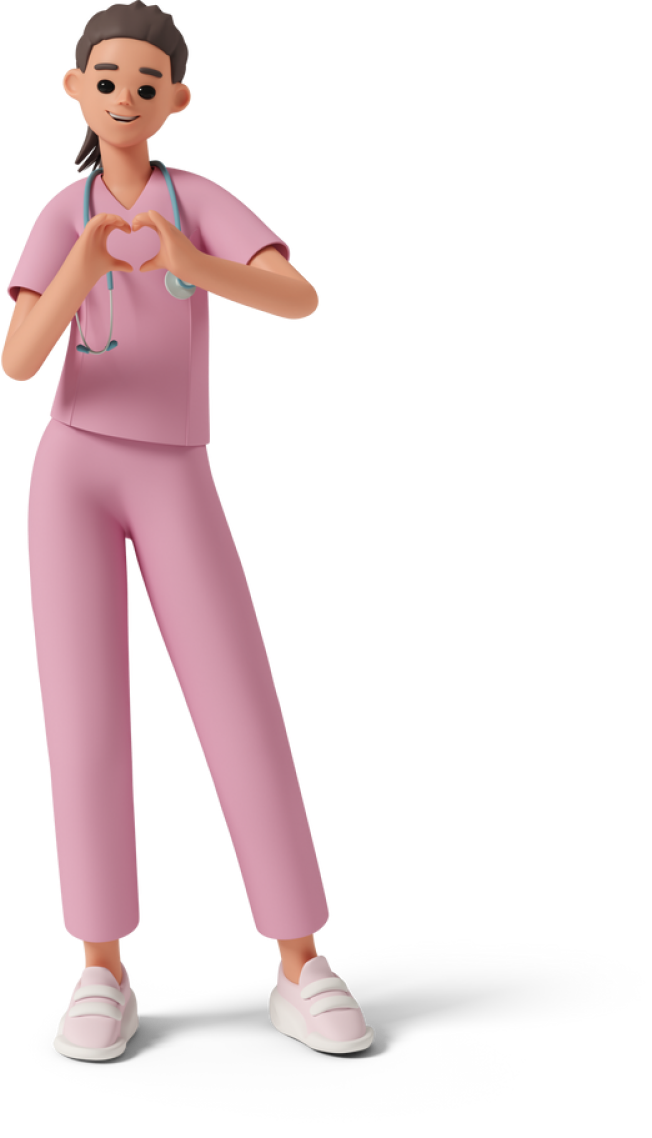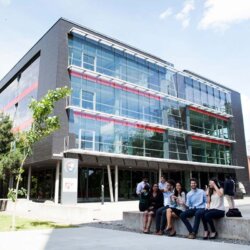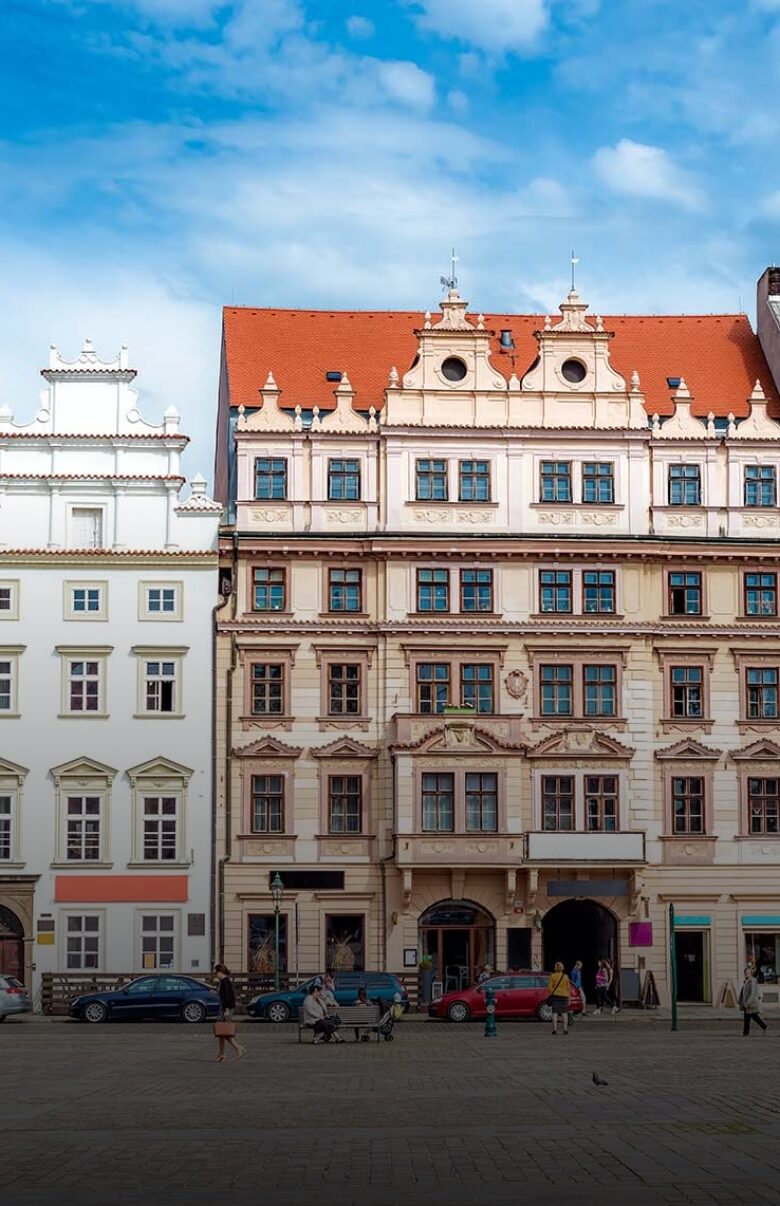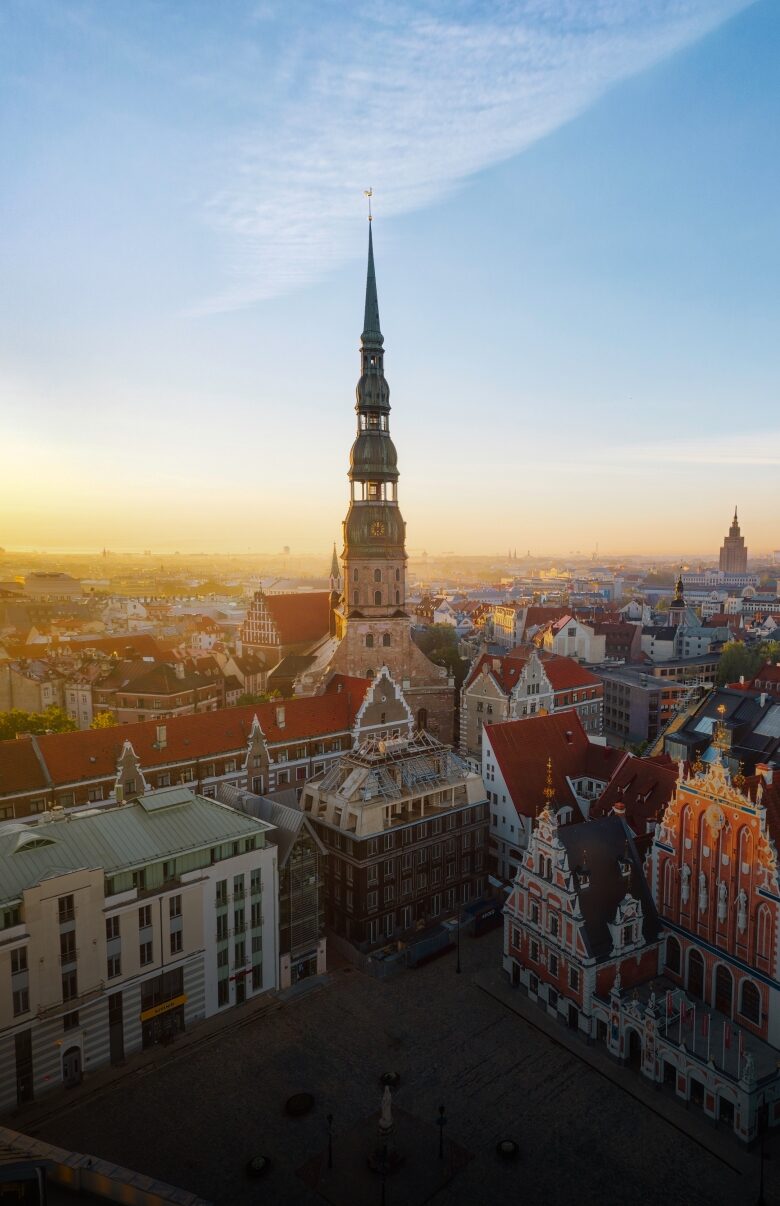Universities
Studying medicine in Lithuania
Every year, numerous students begin their medical studies in Lithuania. The Baltic country in Northern Europe has a rich history, diverse culture and breathtaking scenery. Lithuania is particularly attractive for anyone looking for a place to study medicine without long waiting times - because the universities offer an NC-free admission procedure, a high-quality education and comparatively low tuition fees. In addition, a Lateral entry to a higher semester is possible under certain conditions, which makes Lithuania an interesting option for students changing their degree programme.
Are you interested in studying medicine in Lithuania?
We would be happy to advise you free of charge about your options for studying medicine in Lithuania.
In this article, we will give you a comprehensive overview of studying medicine in Lithuania. We will give you information about the different universities that offer English-language medical degree programmes. We will also show you how futuredoctor can support you on your path to studying medicine in Lithuania. Immerse yourself in the exciting world of studying medicine in Lithuania and discover what opportunities await you there!
What are the advantages of studying medicine in Lithuania?
The decision to purchase a Medizinstudium im Ausland is a big step for many people. Here you can find out more about the special features and advantages of studying medicine in Lithuania.
Admission without numerus clausus
In Lithuania, the Numerus Clausus at the Bewerbung für das Medizinstudium This does not matter - high school graduates do not have to worry about long waiting times. Instead, selection is based on a science entrance test, usually in the form of multiple-choice tests in biology, chemistry and physics. Targeted preparation for these tests significantly increases the chances of success.
Study medicine in Lithuania: English-language degree programme with international recognition
The medical degree programme in Lithuania is offered entirely in English. The medical degree completed in Lithuania is recognised in Germany and all other EU member states in accordance with the EU Professional Recognition Directive. In addition, the degree is also recognised in countries such as the USA and Israel. This enables a flexible professional career in Germany and abroad.
International student community
Lithuanian universities are popular with international applicants. Students from Germany, Austria, Switzerland and many other countries create a multicultural learning atmosphere. Many universities offer social programmes and student initiatives to make it easier for students to get to know each other and integrate.
Attractive university cities with a high quality of life
Vilnius, the capital, offers a wide range of leisure and cultural activities, numerous bars, clubs and events as well as green recreational areas along the River Neris.
Kaunas also boasts a lively student environment, affordable housing and cultural facilities such as museums and galleries.
Nature and local recreation
In addition to studying, Lithuania offers numerous opportunities for recreation. Popular excursion destinations are the Curonian Spit along the Baltic Sea coast or the Hill of Crosses - both places offer nature and history in the immediate vicinity.

Study medicine abroad with futuredoctor
Do you dream of studying medicine, but the chances of getting a place in your home country are slim? We can help you find a suitable study place abroad.
Advantages at a glance:
- EU-wide recognised qualifications
- Study in English or German
- > 95% Success rate
- > 1,000 study places allocated
From the selection of universities and support in the application process to orientation and finding accommodation - we are at your side.
At which universities is it possible to study medicine in Lithuania?
In Lithuania, English-language medical studies are currently offered at two leading universities:
University of Kaunas: Lithuanian University of Health Sciences
Study programmes: Human medicine (6 years), as well as dentistry and pharmacy (5 years)
Capacity: Around 90 places per year on the medical degree programme at the Universität Kaunas
Network: International co-operation with over 140 universities
Focal points: Practical training, modern laboratories, lively student community
Vilnius University (Vilnius University)
Character: Oldest university in the Baltic States (founded in 1579)
Study programmes: Human medicine and dentistry in English
Internationality: Around 1,000 international students per semester
Teaching concept: Teaching in modern facilities, large practical component, focus on clinical skills
Both universities fulfil the EU standards for medical degree programmes and offer degrees that are fully recognised as professional qualifications in Germany and other EU countries. They combine academic quality with practice-orientated teaching and intercultural exchange. Nothing stands in the way of studying abroad to become a doctor in Lithuania. It offers an alternative to pursuing your dream job despite a mediocre A-level average.
What are the requirements for studying medicine in Lithuania?
To obtain a place to study medicine in Lithuania, the following requirements must be met:
Academic qualification
A general university entrance qualification (e.g. Abitur or equivalent qualification) is required.
The numerus clausus does not play a role, but good grades in science subjects such as biology and chemistry are advantageous.
Admission procedure
Admission to Lithuanian universities depends on an entrance test, which usually includes the following components:
60 multiple-choice questions on biology and chemistry
Personal matters Auswahlgespräch to test your motivation and language skills
Language skills
All lessons are taught in English.
An international language certificate (e.g. TOEFL or IELTS) with at least B2 level is required.
Preparation & support
Targeted preparation for the admission test and interview is helpful - we support you with training material and simulated exams.
These requirements apply to both study locations in Lithuania - Kaunas and Vilnius.
Studying medicine in Lithuania - structure and content
The medical degree programme in Lithuania follows the Bologna Bachelor-Master system and is divided into six years: two pre-clinical years, three clinical years and one year of clinical internship.
Study structure
Duration: Including Master's degree around 6 years
Columns: Pre-clinic, clinic, clinical internship
Language of instruction: English, partly supplemented by Lithuanian lessons in the first semesters
Small group lessons: groups of up to ten students enable close supervision, support and dialogue
Preclinical phase (years 1-2)
Core subjects: anatomy, histology, genetics, physics, chemistry
Additional element: Fundamentals of clinical Lithuanian up to the fourth year
Objective: To provide a scientific basis for clinical training
Clinical phase (years 2-4)
Specialisms: Reproduction, neuroscience, immunology, respiration and circulation, metabolism
Beginning of direct practical relevance in simulations and realistic patient situations (such as Kardiologie, Chirurgie)
Clinical year and practical training (years 5-6)
Internal, surgical, paediatric and other clinical modules
Clinical placements and clinical practice in partner clinics and educational institutions
Degree with Master's qualification and final examinations, which form the basis for the licence to practise medicine
Mobility & recognition
Transfer to Germany: transfer possible after the pre-clinical section - the similarity of the curricula facilitates recognition, provided that an official recognition of achievement is available
International exchange programmes, such as Erasmus, make it possible to Auslandssemester in Germany or in other EU Member States
How much does it cost to study medicine in Lithuania?
Lithuanian University of Health Sciences (Kaunas):
Years 1-4: 12,500 euros per year
Years 5-6: 13,000 euros per year
Further fees: Application fee: 150 euros (one-off), enrolment fee: 250 euros (one-off)
Vilnius University:
Annual tuition fee: 13,000 euros
Admission fee: 300 Euro (one-off)
The fees are payable annually and apply to the degree programme in English. These fees are binding and should be carefully planned in advance.
Cost of living in Lithuania
Lithuania is one of the countries with a comparatively low cost of living within the EU. This is a great advantage for students, especially when it comes to long-term student financing.
Rent: 150 - 400 euros/month (depending on city and type of accommodation)
Food: approx. 200 euros/month
Total costs: approx. 500 - 600 euros/month (incl. basic requirements)
Financing options
Scholarship programmes: National and international funding programmes can cover all or part of your study costs.
Student loans: Numerous loans for students offer flexible repayment models after graduation. This option is particularly suitable for covering tuition fees.
BAföG abroad: grants for living expenses, travel costs and up to 4,600 euros per year for tuition fees - ideal for EU countries such as Lithuania.
What you didn't know about Lithuania
Good network! Lithuania ranks among the top countries in the world when it comes to providing the population with high-speed Internet access.
Lithuania's "fragrance of culture" - Lithuania is the only country in the world to have its own national perfume called "Scent of Lithuania".
The national dish in Lithuania is cepelinai. These are potato dumplings filled with minced meat or quark.
A green river - On Vilnius St. Patrick's Day, the river in Vilnius is dyed emerald green. This is an Irish tradition in itself and you may recognise it from reports about Boston or New York.
Applying to study medicine in Lithuania - What should I look out for?
If you would like to apply for an English-language medical degree programme in Lithuania, the following points are particularly important:
Prepare the admission procedure
Universities require a science admission test (often multiple choice in biology, chemistry and physics) and a personal interview. Targeted preparation increases your chances of success Medizinstudienplatz considerable.Submit documents completely in English
All application documents - e.g. university entrance qualification certificate, language certificate (e.g. TOEFL or IELTS), letter of motivation - should be submitted carefully and correctly in English.Note deadlines and start of studies
Medical studies in Lithuania only start in the winter semester - which is also when the semester begins. Therefore, make sure to check all dates and Bewerbungsfristen in order not to jeopardise your chances of admission.
Starting signal
What are you waiting for? 🎉
Order your information pack now, find out more about studying medicine abroad and get started as a medical student!
Frequently asked questions
FAQs about studying medicine in Lithuania
How long does it take to study medicine in Lithuania?
The medical degree programme in Lithuania lasts 6 years for human medicine and 5 years for dentistry and is divided into 12 and 10 semesters respectively.
Is a medical degree from Lithuania recognised in Germany or Austria?
All Universitäten where you can apply via futuredoctor are available within the recognised throughout the EU. This means that you can work as a doctor in Germany, Austria or Switzerland after completing your studies in Lithuania.
Is it easier to study medicine in Lithuania?
Studying medicine is generally a demanding and intensive experience, regardless of where it is undertaken. Studying medicine in Lithuania is comparable to other European countries in terms of learning effort and examination standards. Whether it is easier or more difficult often depends on the student's personal adaptability, language skills and learning habits.
Is it good to study medicine in Lithuania?
Applicants need a general higher education entrance qualification. A science admission test and a personal interview are also part of the admission procedure. A language certificate such as TOEFL or IELTS at level B2 is also required for the English-language degree programme.
What requirements must be met to study medicine in Lithuania?
Applicants need a general higher education entrance qualification. A science admission test and a personal interview are also part of the admission procedure. A language certificate such as TOEFL or IELTS at level B2 is also required for the English-language degree programme.
At which universities can I study medicine with futuredoctor in Lithuania?
futuredoctor works closely with a medical university in Kaunas, Lithuania, which University of Health Sciences. This university offers English-language degree programmes in human medicine and dentistry and is known for its high-quality education.
How can futuredoctor help me with my medical studies in Lithuania?
futuredoctor offers comprehensive support throughout the entire process - from application and preparation to relocation, commencement of studies and beyond. Hier findest du eine Übersicht über unser gesamtes Angebot.
How large are the study groups at Lithuanian medical universities?
The exact size of the learning groups can vary depending on the university and course. In general, however, Lithuanian medical universities emphasise small learning groups in order to enable individual support and an interactive learning environment.
How much does it cost to study medicine in Lithuania?
There are tuition fees at Lithuanian universities, which must be paid annually or per semester. You can find more information on tuition fees on the respective university page here: University of Health Sciences Kaunas.
An overview of the costs involved in studying abroad (living costs, books, leisure time, accommodation, etc.) as well as an overview of the tuition fees at all our universities findest du hier.
What is the cost of living in Lithuania?
The cost of living in Lithuania is significantly lower. You can get by on 500 to 600 euros per month, including rent and food.
How do I apply to study medicine in Lithuania?
To apply to study medicine in Lithuania, simply fill out our online application form. We will then inform you about all further steps of your application and start the application process at your chosen universities. Hier geht's zur Bewerbung.
What happens if I encounter problems during my medical studies in Lithuania?
futuredoctor is at your side. Unser Team is here to help you solve problems, whether they are academic or related to your life abroad. We offer support in overcoming challenges, from finding accommodation to professional issues and any other difficulties during your medical studies abroad
Conclusion
Studying medicine in Lithuania offers numerous advantages for prospective medical students. These include:
Admission independent of the Abitur averageApplicants only have to pass a science admission test.
Recognition of the qualification in the EUThanks to the EU Professional Recognition Directive, the medical degree obtained in Lithuania is recognised throughout the EU. Countries such as the USA and Israel also recognise this qualification.
International study environmentLithuania attracts students from all over the world, which contributes to a multicultural study atmosphere.
Attractive study locationsThe lively cities of Vilnius and Kaunas offer a dynamic student life as well as cultural and natural attractions.
Support from futuredoctorThis company supports applicants in choosing the right university, preparing for the admission test and other steps of the application process.
Tuition fees and cost of livingWhile tuition fees are higher than in some other countries, the cost of living in Lithuania is comparatively low.
There are also interesting facts about Lithuania, such as the good internet network and the unique culture. The application procedure includes a science test and a personal interview, for which good preparation is essential. For those without a traditional Abitur, there are also opportunities to study abroad in Europe.
Studying medicine abroad









